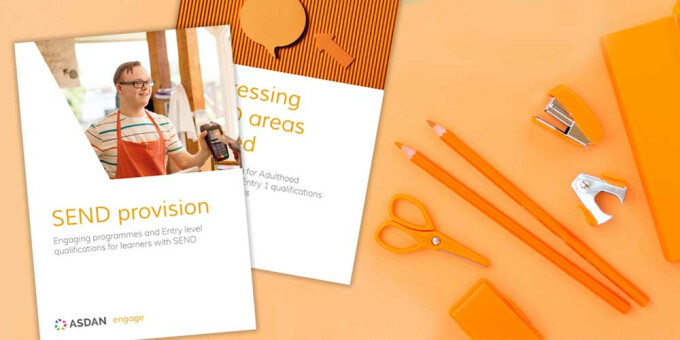One of the biggest education stories so far this year was the release of Ofsted’s draft Education Inspection Framework (EIF) – particularly its reduced emphasis on performance data. This has been welcomed by many as a means of easing the pressure on overworked teachers throughout the education system, but while this certainly shows positive intention, the level of impact this might actually have on their workloads – and how long it might take before that impact is felt – remains to be seen.
As the news headlines testify, SENCOs are among the most under-pressure teaching staff at schools and colleges today.
Published at the end of last year, the National SENCO Workload Survey found nearly three-quarters of SENCOs don’t have enough time to support SEND students. The report also found that 43 per cent of primary and 71 per cent of secondary SENCOs work over nine extra hours per week on SENCO duties – the equivalent of an additional full working day per week on top of anything allocated as SENCO time.
The launch of Ofsted’s consultation on the draft EIF – and its increased emphasis on reducing pressure on teaching staff – coincides with the release of our new SEND provision booklet titled Engaging programmes and Entry level qualifications for learners with SEND.
This booklet is our latest response to addressing the recommendations highlighted in the ASDAN SEND review carried out last year and follows on from the Addressing SEND areas of need document which provides information on how components of ASDAN SEND courses can be used to support longer term outcomes when creating and reviewing EHC and transition plans.
In our new SEND provision booklet, we have mapped two of our more popular courses, Towards Independence and Personal Progress to the four Preparing for Adulthood (PfA) pathways. The PfA pathways help to raise aspirations and prepare children and young people for adulthood from the earliest stages. The mapping is intended to aid practitioners when planning and identifying appropriate activities that support learners’ ambitions and targets.
Both of the above documents can help reduce pressure on centres and their staff by providing clear information on a range of resources that can support effective planning and delivery to provide a personalised learning approach.
As a result of our SEND review, we’re also working to reduce the time required for administration of ASDAN courses, further easing workloads.
2019 will be an exciting year for ASDAN as we work with a range of educators and stakeholders on new developments. For example, we are delighted to have ASDAN listed on the Whole School SEND website and at the response we have received to the resources we have uploaded and look forward to the opportunity to engage with SENCOs and practitioners at future Whole School SEND regional meetings.
We look forward to sharing further updates on our SEND provision developments with you over the course of the year.
